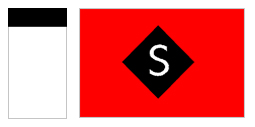Howard Smith Limited
 “Howard Smith’s” incorporation in Melbourne in 1883 followed some thirty years of steadily increasing involvement in the Australian coastal trade. It gathered under one company banner sixteen steamships and one sailing ship. In 1914, Howard Smith Limited became the parent company of an entity which had coalesced from a variety of smaller shipping interests, Australian Steamships Limited. The Great War saw its vessel Canberra trooping between Australia, the Mediterranean and the Far East. Two of its ships were casualties: the Era was sunk in the Mediterranean in May 1918 and the Clyde survived bombing in 1916.
“Howard Smith’s” incorporation in Melbourne in 1883 followed some thirty years of steadily increasing involvement in the Australian coastal trade. It gathered under one company banner sixteen steamships and one sailing ship. In 1914, Howard Smith Limited became the parent company of an entity which had coalesced from a variety of smaller shipping interests, Australian Steamships Limited. The Great War saw its vessel Canberra trooping between Australia, the Mediterranean and the Far East. Two of its ships were casualties: the Era was sunk in the Mediterranean in May 1918 and the Clyde survived bombing in 1916.
At the outbreak of the Second World War, the fleet numbered eighteen:
Ship |
Built |
Gross Tons |
In Service |
| Period | 1907 | 2791 | 1907-1946 |
| Burwah | 1908 | 2273 | 1908-1947 |
| Aeon | 1913 | 3763 | 1913-1955 |
| Canberra | 1913 | 7710 | 1913-1947 |
| Time | 1913 | 3322 | 1913-1949 |
| Innisfail | 1912 | 399 | 1916-1946 |
| Macedon | 1916 | 4368 | 1916-1955 |
| Kowarra | 1916 | 2125 | 1919-1943 |
| Kintore | 1903 | 231 | 1919-1943 |
| Era | 1921 | 3148 | 1921-1955 |
| Lady Isobel | 1921 | 1408 | 1926-1955 |
| Caledon | 1927 | 1083 | 1927-1956 |
| Euro | 1897 | 255 | 1930-1948 |
| Caldare | 1930 | 760 | 1930-1956 |
| Marimba | 1913 | 139 | 1932-1961 |
| Marrawah | 1910 | 472 | 1936-1947 |
| Age | 1936 | 4734 | 1937-1968 |
| Cycle | 1939 | 3952 | 1939-1961 |
Canberra again went into service, under requisition from July 1941, periodically trooping, carrying about 650 personnel. Kowarra was lost to enemy action, torpedoed by a Japanese submarine while en route Bowen-Brisbane with a cargo of sugar, on 24 April 1943, with the loss of twenty-one lives. Age, Period and Canberra, though experiencing enemy attacks and loss of crew lives, survived as did the remainder of the fleet, to resume peacetime service after 1945 (in the case of Canberra after June 1946 . Innisfail served under requisition, while also requisitioned from November 1941 Marrawah operated as a minesweeper until February 1943, then spent the remainder of the war with the United States Small Ships Section.